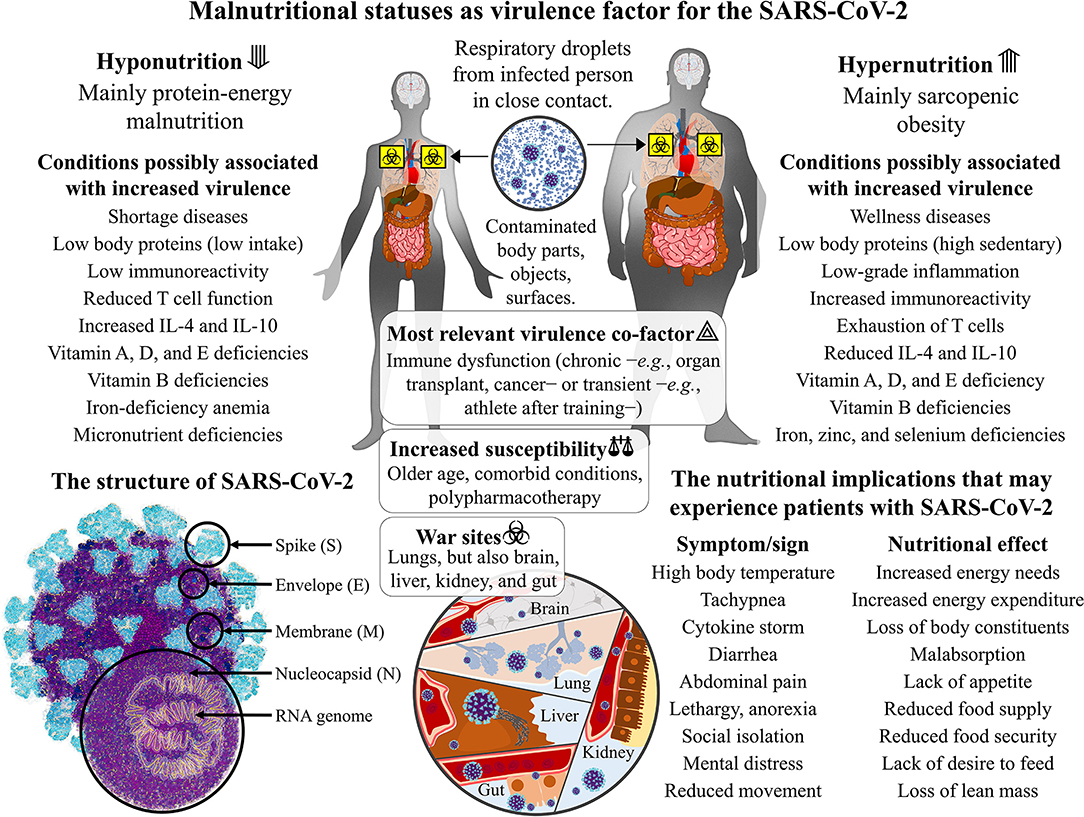Published: April 23, 2020 – Frontiers in Medicine - www.frontiersin.org
This article, published by www.frontiersin.org, says that:
- “Malnutrition is the primary cause of immunodeficiency worldwide” and affects both the innate and adaptive immune responses… that should inhibit viral proliferation..” (bold added)
- “… Vitamins have a role in the proper functioning of both the innate and adaptive immune responses, with vitamin D and A being the main actors." (bold added)
- “A plethora of other micronutrients is known to have a role in the immunocompetence of the host against infections, including B vitamins, vitamin C, vitamin E, iron, selenium, and zinc" (bold added)
- “…Malnutritional statuses carry less endurance to survive from severe COVID-19.” (bold added)
- “…Once affected, malnourished individuals will have fewer body reservoirs and immune potential to fight for recovery” (bold added)
- “A malnutritional status is associated with immune dysfunction. Malnourished individuals may be more susceptible to SARS-CoV-2 infection. Subjects with COVID-19 often become malnourished. Nutritional support is vital in severe COVID-19 patients.” (bold added)

The SARS-CoV-2 virulence and the malnutritional status of the human host: immune-based dysfunctions in hypo- and hypernutrition. The severe acute respiratory syndrome coronavirus that was discovered in Hubei province, China, at the end of December 2019 (SARS-CoV-2) is a single-strand positive-sense RNA virus with the encoding potential of four structural proteins: the spike (S), the envelope (E), the membrane (M), and the nucleocapsid (N). It spreads through respiratory droplets of infected patients that can deposit on body parts and fomites. The basal immune dysfunction that exists in protein-energy malnutrition and sarcopenic obesity can make individuals more susceptible to SARS-CoV-2 contraction and affections. Other than the collapse of alveoli and respiratory failure, the coronavirus replication leads to systemic consequences in the brain, liver, kidneys, and gut. Once affected, malnourished individuals will have fewer body reservoirs and immune potential to fight for recovery.